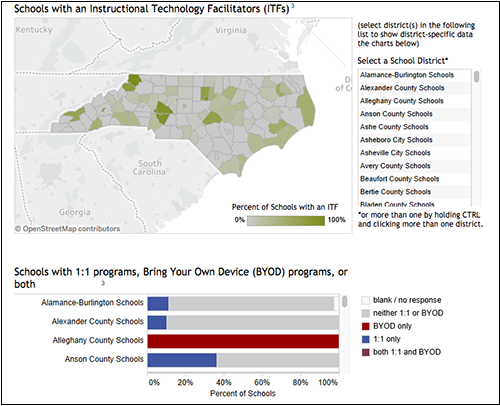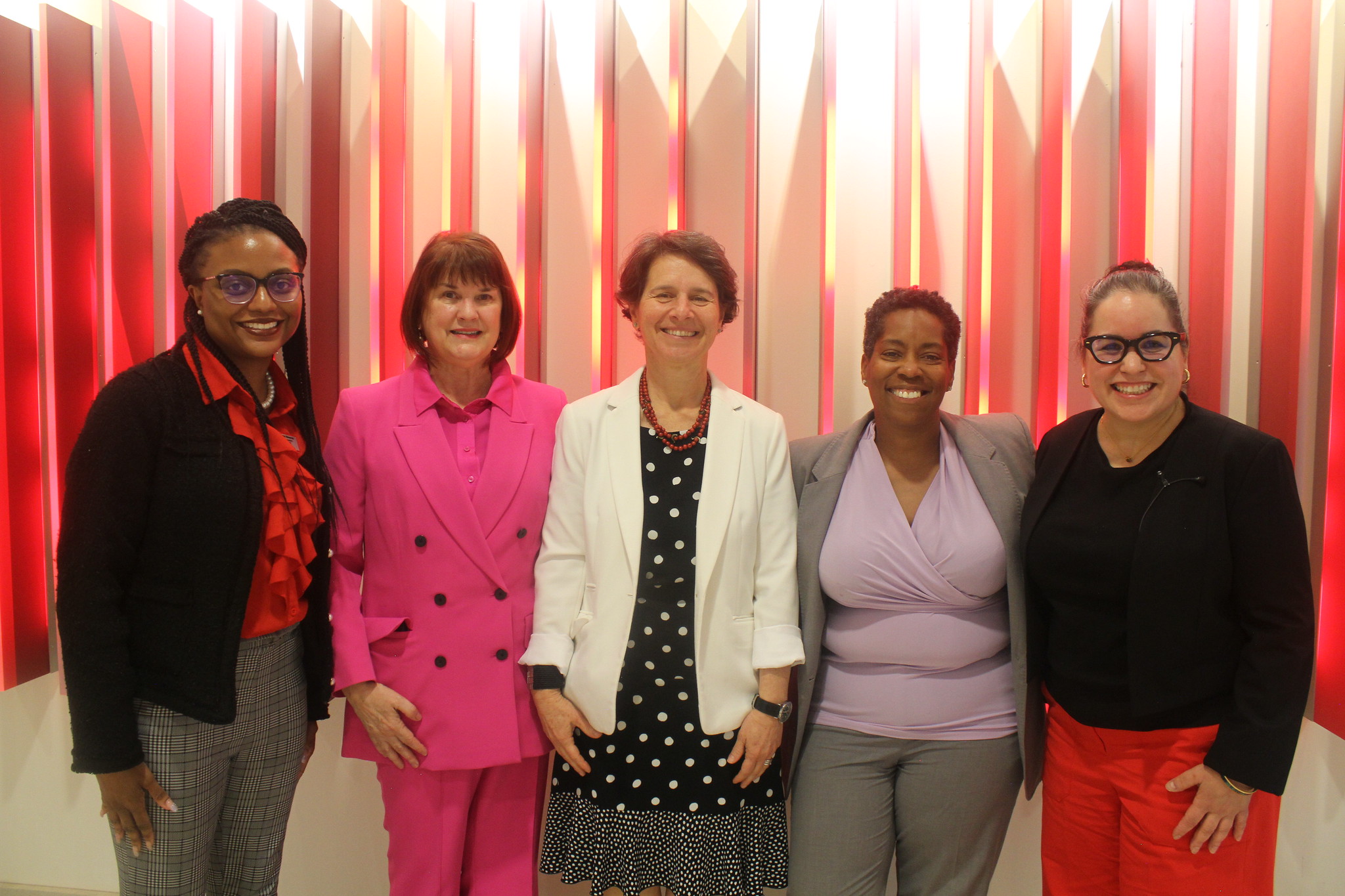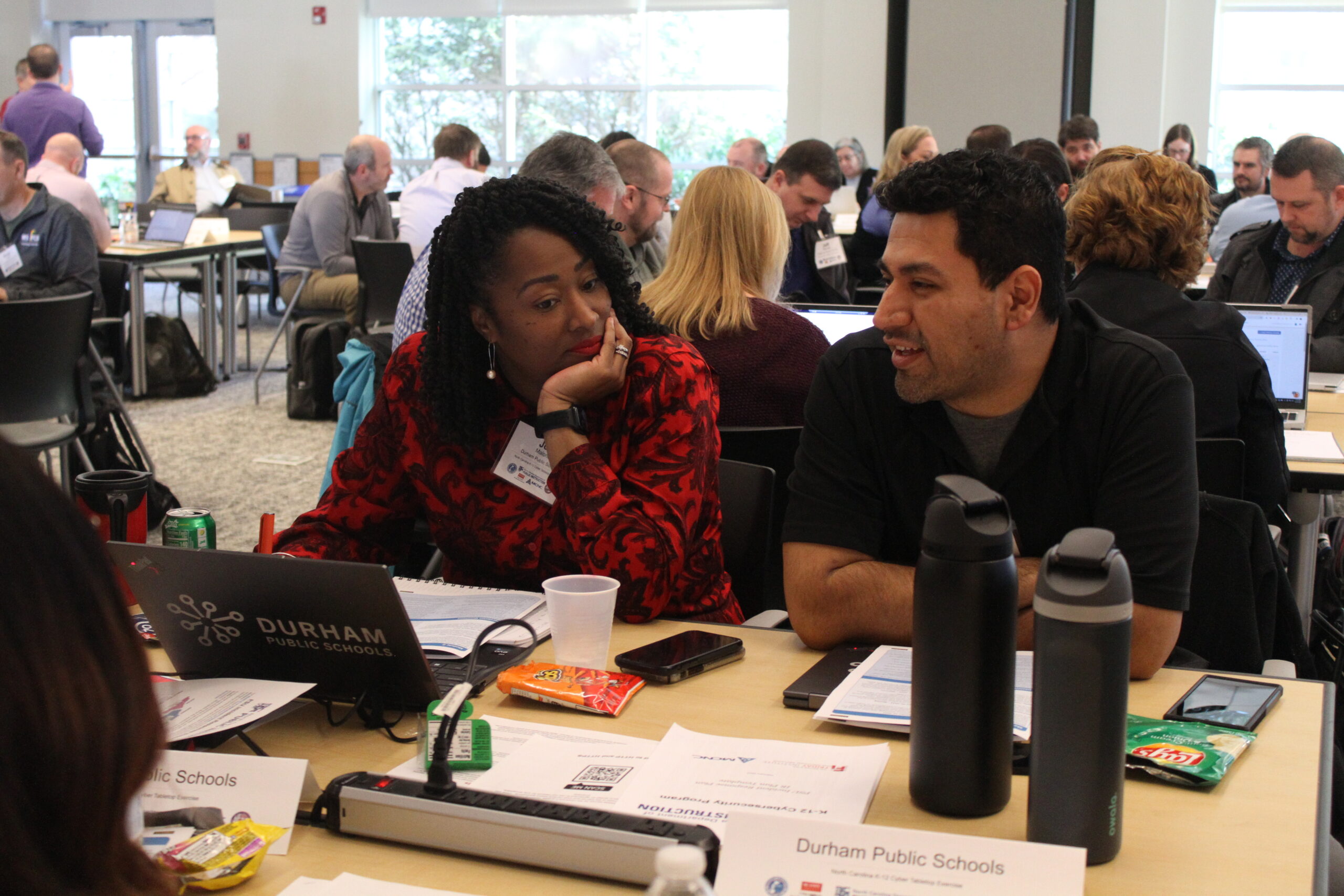Discussing Digital Equity in NC Schools

The NC Digital Learning Plan provided a sound basis for planning the State’s transition to digital age learning. It suggests that in order to fully transition, students and teachers need reliable and consistent access to digital resources – providing equity of access across all districts and charter schools, small and large, rural and urban, economically sound and economically distressed. The work highlighted many different programs, initiatives and supports that North Carolina does well to prepare students, teachers and leaders for the effective use of technology for teaching and learning, however, Friday Institute Research and Evaluation (FIRE) team recognized the need for a larger discussion on common challenges achieving digital equity. On June 22nd, the Friday Institute in partnership with the NC State Board of Education Department of Public Instruction, hosted the Redefining Equity for Digital-Age Learning Summit.
The convening brought together educators, industry representatives, policy makers, researchers, and other professionals, to engage in collaborative and thoughtful discussions about strategies for anywhere and anytime access to digital resources for all North Carolina students.

Dr. Avril Smart, a Research Scholar on the FIRE Team, lead the work on Digital Equity. She described some of the goals of the event, “The topic of equity in education is not a new one, but as it relates to digital learning, equity has become particularly relevant nationally and in North Carolina specifically. Our goal in hosting the convening was to promote discussion around digital equity, promote a better understanding of the challenges in North Carolina, and give all education stakeholders an opportunity to connect and work together to develop solutions”.
The planning team was guided by a complex definition of equity that describes digital age learning beyond the walls of the school and beyond the school day. In order to represent the diverse issues that affect students in the State equity for digital age learning meant “ensuring that every student, regardless of socioeconomic status, language, race, geography, physical restrictions, cultural background, gender, or other attributes historically associated with inequities, has equitable access to advanced technologies, communication and information resources, and the learning experiences they provide”1. There were five working groups that focused on NC’s challenges with digital equity: 1) Out-of-School Internet Access, 2) Professional Development and Preparation for Educators, 3) Personalized Learning in High Needs Classrooms, 4) Building Parent and Community Support, and 4) Planning for Sustainability for Devices, Networks and Resources. Each group spent time defining the digital equity challenge associated with their topic and brainstorming solutions that could be applied at the school, district or state policy level.

The event was sponsored by AT&T who has been a leader in providing broadband internet access across the state. Robert Doreauk, the Regional Director of External Affairs at AT&T said, “Digital-age learning is something that we need to be aware of and we need to keep growing upon the initiatives that are already in place. We need to take the ideas that we’ve heard today from such a great group of panelists and great group of people that [the Friday Institute] convened and just do some action planning. It doesn’t stop here. This is a good first step”.
The FIRE team also provided a number of resources that supported further understanding of digital equity, and the scope of the challenges that affect NC students. National and local articles, videos, reports and federal briefs were curated and organized by the five topics. In addition, the team featured several different education leaders across the state who shared their successes and lessons learned from digital equity initiatives at different scales. [See 8 Digital Equity Profiles from NC Education Leaders]

A new data visualization resource developed for this event was also unveiled and made available for public use: the Digital Equity Data Dashboard. The tool provides curated local and national data to help districts better understand the digital equity challenge in North Carolina.
“The dashboard is a compilation of seemingly disparate federal, state and local data made accessible through data visualization. Our team worked very hard to connect the data sources available to us, like internet connectivity, free and reduced priced lunch data, and per pupil spending to give educators an opportunity to explore the breadth of equity issues that affect students’ learning opportunities in the state. We hope that presenting the information in this way will help schools and districts to plan and develop initiatives more strategically”, said Smart.
The Friday Institute believes that achieving digital equity is an important step toward helping schools become future-oriented organizations that continue to serve all students. Hosting this Summit is just one way the Institute fosters collaboration to improve education through innovation in teaching, learning, and leadership.
“This is an issue that’s been around for a while, initially described as a digital divide, so I thought this was a good opportunity to try to update what that means,” said Dr. Ron Bailey, Professor of African American Studies at University of Illinois at Urbana-Champaign. “There are still issues of equity in terms of access, not only to the tools but access to information… It was a very positive discussion with a lot of positive energy moving forward.”

